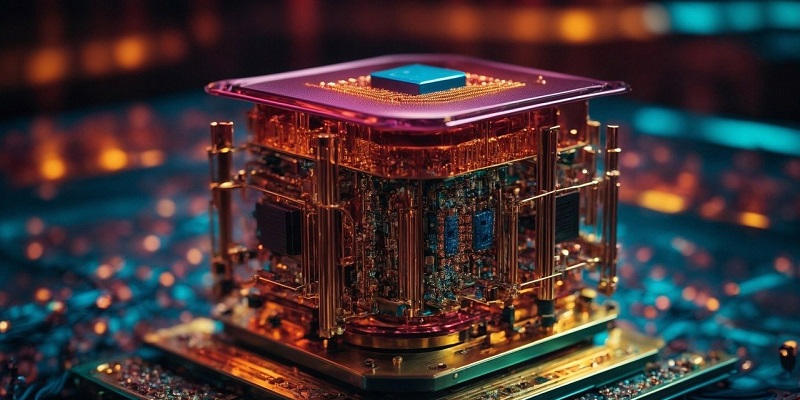Advanced Micro Devices (AMD) announced today its plans to acquire Nod.ai, a startup specializing in optimizing AI software for high-performance hardware. This strategic move demonstrates AMD’s commitment to establishing a strong foothold in the rapidly expanding AI chip market. With this acquisition, AMD aims to enhance its position by leveraging Nod.ai’s expertise and technologies.
AMD’s Growth Strategy in the AI Sector
AMD has been actively pursuing a growth strategy in the AI sector. The company is focused on developing an open software ecosystem that simplifies the adoption process for customers. By providing an accessible and user-friendly platform, AMD seeks to democratize AI deployment and empower a wider range of users to harness the potential of AI technology.
Nod.ai specializes in AI optimization, playing a crucial role in optimizing AI software for high-performance hardware. Through advanced compiler-based approaches, Nod.ai provides key enabling technologies for future AI systems. By collaborating with Nod.ai, AMD can benefit from their expertise in developing efficient and powerful AI software that maximizes the performance of AMD hardware.
Accelerating AI Model Deployment with Nod.ai’s Software
The acquisition of Nod.ai will expedite the deployment of AI models across a broad range of platforms powered by AMD’s architectures. Nod.ai’s software enhances the efficiency and speed of model deployment, enabling developers to leverage the full capabilities of AMD hardware. AMD’s customers will enjoy the advantage of deploying highly performant AI models, finely tuned for their AMD hardware.
Strengthening AMD’s Position in the AI Market
In recent years, AMD has made substantial investments in AI technologies to compete with key rivals like Nvidia and Intel in the fast-growing AI market. The acquisition of Nod.ai is a testament to AMD’s commitment to elevating its capabilities and offerings in this sector. By combining Nod.ai’s expertise with their own, AMD intends to establish a strong presence and position themselves as a viable alternative in the AI chip market.
Growth Potential in the AI Market
The global AI market is projected to reach a staggering $594 billion by 2032, emphasizing its immense growth potential. With this acquisition, AMD is well-positioned to seize opportunities and capitalize on this market expansion. By expanding its AI portfolio, AMD can tap into the growing demand for AI solutions and cater to the evolving needs of various industries.
Leveraging Engineering Talent from Nod.ai
AMD aims to leverage the engineering talent from Nod.ai to boost its open-source developer credibility. Nod.ai’s skilled engineers will contribute their expertise to further enhance AMD’s capabilities in developing open-source AI software solutions. This collaboration will not only strengthen AMD’s offerings, but also foster a vibrant developer community that can contribute to and benefit from their shared knowledge and advancements.
Nod.ai’s Contributions to AI Software Repositories
Nod.ai has established itself as a valuable contributor to prominent AI software repositories like SHARK and Torch-MLIR. Their involvement in these repositories indicates their active engagement with the research community. Researchers and developers who rely on these repositories will benefit from Nod.ai’s contributions, which can enhance the efficacy and performance of AI models across the board.
AMD’s acquisition of Nod.ai reinforces its commitment to the AI market and its continued efforts to offer top-notch solutions. By integrating Nod.ai’s AI optimization expertise and technologies into AMD’s portfolio, the company aims to provide its customers with open software for deploying highly performing AI models. As the AI market continues to expand rapidly, AMD’s acquisition of Nod.ai positions them favorably to capture opportunities and deliver innovative solutions that meet the evolving needs of AI developers and users worldwide.

